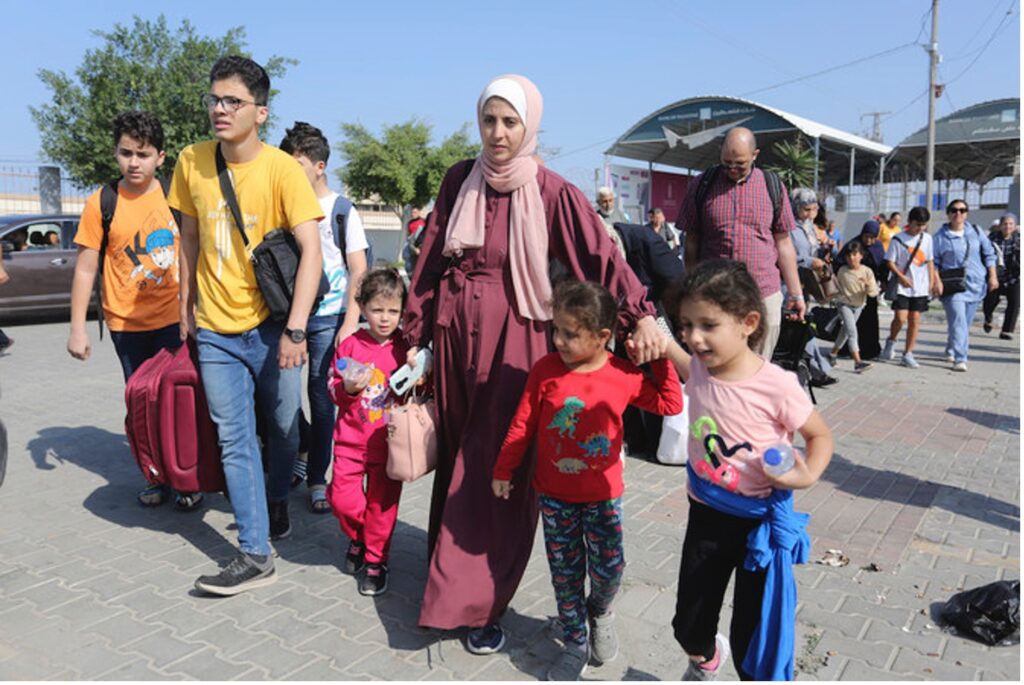Prayer Fuel
FOREIGNERS
As the Israelites journeyed from being foreigners in Egypt to becoming a distinct free people in the Sinai, they learnt how to treat foreigners living amongst them.

Empathy
The imperative to treat foreigners with compassion and fairness is rooted in the Israelites’ own experiences of oppression and displacement. The Torah exhorts them to never forget that they themselves were subjected to harsh labour under Pharaoh’s rule in Egypt. This foundational experience of being foreigners who suffered oppression in another land is to serve the Israelites as a powerful reminder that they are no different or better than the foreigners living among them. They are not to treat foreigners as Pharaoh did but with the compassion and justice of Yahweh.
Not to Oppress the Foreigner

The Lord spoke to Moses and the Israelites from Mount Sinai “not oppress a foreigner” or “mistreat them”[1]. This injunction reflects a fundamental principle of justice and equality. It affirms the inherent dignity and worth of all individuals, regardless of their nationality or social status. It serves as a moral compass guiding the Israelites’ conduct towards foreigners, demanding that they recognise and overcome the temptation to exploit or discriminate against those who are different from themselves.
Full Legal Protection for Foreigners

The law given in the Sinai commands that foreigners be granted equal access to justice.
“You are to have the same law for the foreigner and the native-born”[2]
Legally, the Torah mandates equal protection under the law for both native-born Israelites and foreigners. It states,
“You shall have one law for the stranger and the native alike”[3].
This principle of legal equality comes from the Torah’s commitment to impartiality and justice. It affirms that foreigners are entitled to the same rights and privileges as members of the Israelite community.
“You shall not oppress a hired worker who is poor and needy, whether he is one of your brothers or one of the sojourners who are in your land within your towns”[4].
Vulnerable workers and foreigners are mentioned specifically to ensure they are not exploited. Wherever the law of God is taught faithfully favouritism or discrimination cannot be tolerated within social interactions and the law courts.
Integration
Additionally, the law given in the Sinai emphasises the inclusion of foreigners within the religious community of Israel. People from all nations are invited to participate in the life and ways of the one true God. The law declares,
“For the Lord your God is God of gods and Lord of lords, the great, the mighty, and the awesome God, who is not partial and takes no bribe. He executes justice for the fatherless and the widow, and loves the sojourner, giving him food and clothing. Love the sojourner, therefore, for you were sojourners in the land of Egypt”[5]
The law given from Mount Sinai challenges all the nations of the world to build just and free societies by working for the common good. This involves transcending tribalism and self-interest and embracing foreigners as equals.
Reflection
Egypt currently hosts around 9 million refugees, largely from Sudan and Syria. In contrast to other Arab countries which cluster refugees in camps, Egypt has absorbed foreigners into her large cities, particularly Cairo, alongside Egyptians.
Prayer
Praise the Lord for the compassion and strategic provision the Lord has made for foreigners in his law.
Praise God for the willingness and capacity of Egypt to absorb so many refugees, despite her economic crisis.
Please pray for community leaders to be willing and able to cultivate understanding and creative cooperation with foreigners.
Pray for foreigners to become good citizens and seek the good of Egypt and her people.
Please pray for Egypt’s leadership as they negotiate with Israel, Hamas, Arab nations, Europe, and America on how to respond in wise and godly ways to the desperate plight of the Palestinians on their border.
Please pray that more and more people will come to realise that the Prince of Peace, the Lord Jesus Christ, is the only solution for all parties in this dilemma.
[1] Exodus 22:21, 23:9.
[2] Exodus 12;49.
[3] Leviticus 24:22.
[4] Deuteronomy 24:14.
[5] Deuteronomy 10:17-19.
